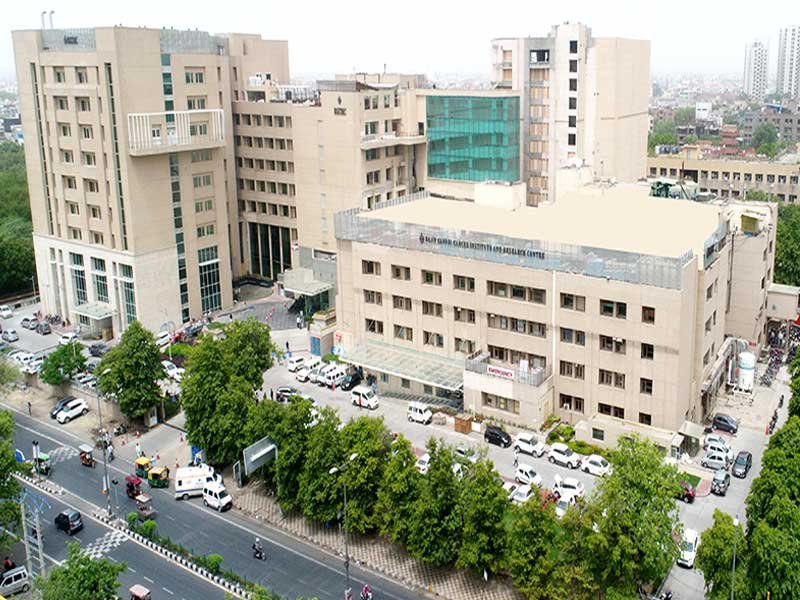Bone marrow transplant in India is the right choice for international patients due to its affordability
Recovery Time
3/4 Months
Success Rate
80-95%
Hospital Stay
25/30 Days
Treatment Type
Non-Surgical
Home Treatments Hematology Bone Marrow Transplant
Do you want to know what bone marrow transplant costs in India?
Bone marrow is the soft, spongy tissue inside our bones where most body cells develop and are stored, and a bone marrow transplant helps treat different diseases and types of cancer.
However, the cost of bone marrow transplants in Western countries is very high and you must be looking for an affordable option for it.
Here’s your chance! India offers affordable solutions for bone marrow transplants by providing highly skilled hematologists, the latest technologies, accredited hospitals, and an experienced surgical team.
Choose India for your treatment, here you'll receive affordable, quality care without compromising quality.

A bone marrow transplant is used to treat many diseases, including various types of cancer. However, a transplant might be required when the high doses of chemotherapy or radiation harm or destroy bone marrow or stem cells.
Bone marrow transplants serve different purposes, including:
Additionally, it also provides relief to patients with cancerous or noncancerous diseases, such as:
India offers affordable treatment costs for bone marrow transplants, which include surgical costs, pre- and post-surgical diagnosis, rehabilitation if necessary, hospital stays, and so on.
Cost Component | Details | Estimated Cost in USD |
Pre-operative Consultation & Diagnosis | Consultations, X-rays, MRI scans, blood tests | 1200 USD |
Surgery Costs | Includes surgeon fees, type of surgery, and hospital stay | 25,000-27,000 USD |
Rehabilitation and Follow-up | Physiotherapy sessions, medications, supportive devices, and follow-up visits | variable for procedure |
There are three types of bone marrow transplantation, which include:

Country | Cost Structure |
India | 25,000-27,000 USD |
United States | 80,000-170,000 USD |
Germany | 50,000-100,000 USD |
Turkey | 32,000-65,000 USD |
◾Key Takeaways
✅ Affordable Treatment Cost: India offers affordable treatment options for patients suffering from blood disorders or any other autoimmune diseases. If you are seeking a cost-effective solution then India is a great option for you.
✅ Advanced Medical Technology: Indian hospitals are using new medical technologies to improve bone marrow transplants. These technologies include targeted therapy, immunotherapy, and HLA typing. They help patients have better transplant results and allow more people to qualify for the procedure.
Bone Marrow Transplant cost
Treatment Name
Estimated Cost
Bone Marrow Transplant - BMT 25000-27000 USD
Paediatric Hemato Oncologist and Bone Marrow Transplant Surgeon 20+ Years of Experience
Dr. Vikas Dua
Beds: 539
New Delhi
Beds: 230
New Delhi
Beds: 710
New Delhi
Beds: 650
New Delhi
Beds: 191
New Delhi
Beds: 310
New Delhi
Beds: 330
Gurugram
Beds: 380
New Delhi
Beds: 402
New Delhi
Beds: 1300+
Gurugram
Beds: 1000
New Delhi
Beds: 500
New Delhi
Beds: 450
Faridabad
Beds: 675
New Delhi
Beds: 500
New Delhi

Max Super Speciality Hospital, Saket

Aakash Healthcare Super Speciality Hospital

Indraprastha Apollo Hospital

BLK Max Super Speciality Hospital

Dharamshila Narayana Superspeciality Hospital

Fortis Escorts Heart Institute

Fortis Memorial Research Institute

Manipal Hospital Dwarka

Max Super Speciality Hospital Shalimar Bagh

Medanta - The Medicity Hospital

Moolchand Kharaiti Ram Hospital

Rajiv Gandhi Cancer Institute and Research Centre

Sarvodaya Hospital

Sir Ganga Ram Hospital

Venkateshwar Hospital

Over the years, scientists have made important progress in improving bone marrow transplant (BMT) results and allowing more patients to qualify for the procedure. Here are some key advancements:
New genetic tests and HLA typing have made it easier to choose the right donors. Accurate HLA typing helps reduce the chance of the body rejecting the transplant and leads to better overall outcomes.
In the past, doctors used high doses of chemotherapy and radiation to prepare patients for a bone marrow transplant. Now, they use lower doses, known as reduced-intensity conditioning regimens. This makes the procedure safer, especially for older or less healthy patients.
Targeted Treatments and Immunotherapy
Targeted therapies, such as monoclonal antibodies and small-molecule inhibitors, are now part of care after the transplant. These treatments focus on killing cancer cells directly. They help make the transplant more effective by reducing leftover cancer and lowering the risk of it coming back.
Fill in your details and we'll get back to you soonGet Free Treatment Quote
Before the transplant, you may undergo several tests, which include:
🟢Do’s Before Surgery
✅ Do regular exercise, it will help your body to respond better and make your recovery faster.
✅ Bring a family member or someone who can care for your physical needs, medication, and food and also become your emotional support during your treatment.
✅ Brush your teeth and gums twice or three times a day by using a soft-bristled toothbrush and fluoride toothpaste and also floss once a day.
🔴Don’ts Before Surgery
❌ Quit smoking or using tobacco products because it can increase the risk of blood clots and respiratory infections which affects your recovery process.
Before the Treatment
During the Treatment
Leukapheresis
After the Treatment
Recovery Time and Hospital Stays
The recovery time of a bone marrow transplant might be 3 to 4 months, yet you need to stay in the hospital for 25/30 days.
The success rate of bone marrow transplants is 80 to 95%, yet it depends on how is patient's health is and whether he/she following instructions properly or not.
Fill in your details and we'll get back to you soonGet Free Treatment Quote

Here are some complications that might happen with a bone marrow transplant, yet each individual can experience symptoms differently.
Complications include:
Why Choose Mejocare for Bone Marrow Transplant in India?
✅ Team of Top Oncologists: We recommend you doctors have more than 20 years of experience.
✅ JCI/NABH Accredited Hospitals: We have also partnered with hospitals that have State-of-the-art Facilities that are equipped with the latest technologies such as robotics, machine learning, and cutting-edge diagnostic and therapeutic equipment, designed to offer you comprehensive and personalized care.
✅ Other Benefits: We offer swift and comprehensive responses, precise cost estimates, assistance with obtaining medical visas, accommodation arrangements in India, and priority scheduling for appointments with doctors. Additionally, we ensure a smooth arrival in India by providing airport pickup, transportation to your hotel, support with hospitalization, and much more.
Bone marrow transplant is an essential procedure that replaces damaged bone marrow with new, working bone marrow. This procedure is performed when the bone marrow doesn't produce enough cells. To get this done, the patient may undergo several tests that will help doctors determine what type of bone marrow you needed.

Medically Reviewed By
QualificationsMBBS, DTMU University, Georgia.Radiation Oncology Resident at Burdwan Medical College and HospitalDr. Aryan Malhotra is a skilled and caring doctor. He is a Radiation Oncology Resident at Burdwan Medical College and Hospital. He treats people with cancer and works closely with patients during their treatment.He completed his MBBS from David Tvildiani Medical University in Georgia. He has passed the USMLE... Read More
Registration Number: 95565
Qualification: MBBS, MD from DTMU University, Georgia, Radiation Oncology Resident at Burdwan Medical College and Hospital
The average cost of Bone Marrow Transplant in India ranges from 25000-27000 USD.
The success rate of Bone Marrow Transplant in India is around 80-95%.
You'll stay in the hospital until the engraftment process occurs, which usually takes around 2 to 3 weeks. Once your new blood cells start developing, you'll be discharged with instructions to follow up with the transplant team.
The recovery time for a Bone Marrow Transplant in India typically involves leaving the hospital after engraftment, which usually occurs between days +15 and +30. However, for the next one to three months post-discharge, patients are advised to stay close to the hospital for outpatient monitoring by their doctor to ensure a smooth recuperation and address any potential issues.
Yes, there are several risks associated with bone marrow transplant in India, including infections, low platelet and red blood cell counts, pain, fluid overload, respiratory distress, organ damage, and graft failure.
Physiotherapy uses exercise to improve strength, balance, and mobility. A physiotherapist assesses your needs, creates a personalized treatment plan, and may conduct a functional evaluation. They also recommend walking aids if necessary and help you understand the benefits of exercise for independent engagement.
Yes, it is necessary to have a companion.
Following a bone marrow or stem cell transplant, doctors typically advise against traveling internationally for at least six months. Most people require routine checkups. Additionally, you might require blood transfusions at this time.
Yes, you can do your own research and choose your therapist.
Paracetamol can be used regularly to control mild to moderate pain. You can use non-steroidal anti-inflammatory drugs (NSAIDs) like diclofenac or ibuprofen to manage moderate pain.
Yes, insurance will cover the cost of a Bone Marrow Transplant in India.
To discover the top doctors or hospitals in India, you can visit our website, mejocare on the doctors' page, you can filter and find the finest doctors, while on the hospital page, you can identify the best hospitals. Additionally, you can reach out to us, and we will gladly offer you all the necessary suggestions and information you need.
This procedure is painless and performed while you are awake. It typically takes about 3 to 4 hours, and if an insufficient number of cells are removed during the first attempt, it may need to be repeated the following day.
No, there is no waiting list for Bone Marrow Transplant in India.
Blood tests, A chest X-ray, PET scan, Heart tests, A bone marrow biopsy, and Donors are required to undergo specific tests as well.
Doctors normally advise allogeneic transplant recipients to wait at least one year after their transplant before returning to work. This is because your immune system needs 9 to 12 months to heal. Some people may be able to return to work sooner if their doctor gives them the go-ahead.
After surgery, certain medications can cause constipation, Eat less fatty, processed, and sugary foods. Avoid red meat, dried foods, and full-fat dairy. Choose a diet rich in fiber, fruits, and vegetables to prevent constipation.
Aftercare services provided by the hospital typically include monitoring vitals, wound care, managing post-operative complications, rehabilitation services, and follow-up care.
Our care team can help you.
